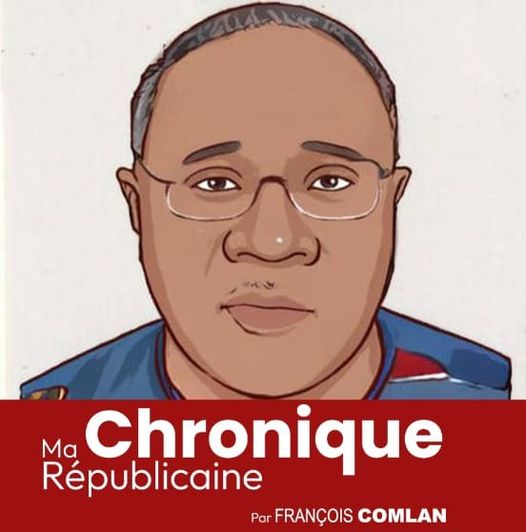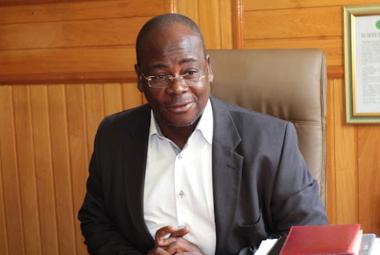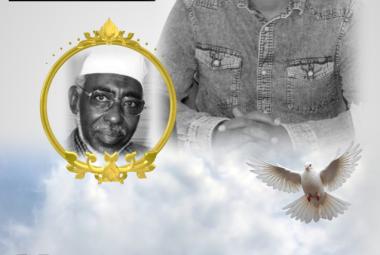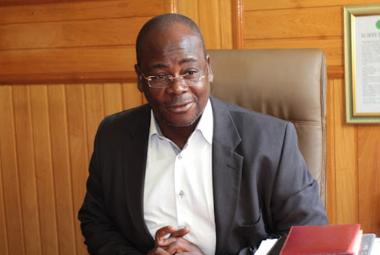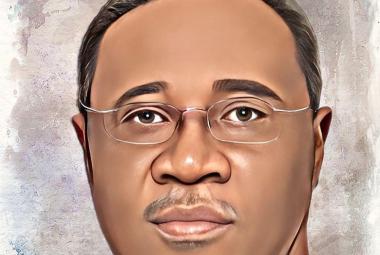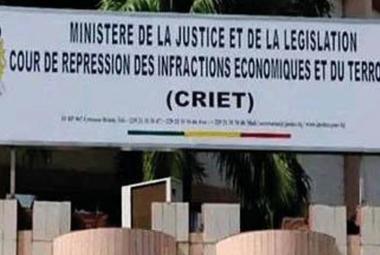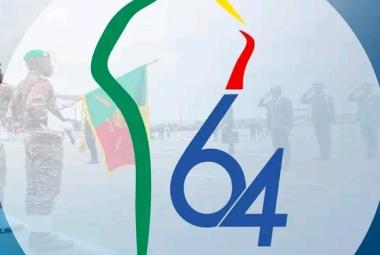Mr. President,
May your high office not be shaken by my words, because they do not seek to disturb your Court or to question its noble authority. You and I share, I firmly believe, the same imperious quest for truth. I am neither a seasoned lawyer nor a giver of lessons; only a scrutinizing columnist, humbly engaged in the meanders of Justice. Consider this plea as the echo of a citizen who lends his voice to that of an entire people. Receive it, I beg you, with the benevolence due to a respectful approach, without malice or offense.
If during the kidnappers' hasty trial, only Steve Amoussou was mentioned, why do we invoke "Hounvi" at every turn? Let us remember: it is not up to Mr. Amoussou to prove that he is not "Hounvi", but up to the courts to prove the opposite. _"Actori incumbit probatio"_: the burden of proof lies with the applicant. This case is a chasm of procedural defects, and _in limine litis_, it will be up to the public prosecutor to prove, beyond any reasonable doubt, that the man in question is indeed this mysterious "Hounvi".
Mr. President,
Members of the Tribunal,
May the gravity of this day be commensurate with the stakes that we bear together: justice flouted, a trial tainted, and the dignity of a man dragged through the mud by the invisible hand of arbitrariness. Steve Amoussou, a citizen, a refugee, a human being, was abducted from a foreign land, in defiance of international law, to be transformed, right here, into a chimera, that of "Brother Hounvi". But at what point, Mr. President, was it possible to prove that this man would be the one they call him? Where is the tangible, irrefutable evidence, "Idem est non esse aut non probari"; what is not proven is as if it did not exist.
The Court for the Repression of Economic Offenses and Terrorism (Cour de Répression des Infractions Économiques et du Terrorisme) judged, with rare speed, the kidnappers of Mr. Amoussou. But what did it do? It cleared them. It imposed sentences of rare leniency, while recognizing that their act, a cross-border kidnapping, was an "illegal arrest". And while this trial was played out in fast-forward, no one questioned the imaginary debt brandished to justify this kidnapping. A debt of ten million, Mr. President, a figure whispered as if by magic, without the slightest creditor, without the slightest trace, and without the Beninese justice system having had the wisdom to issue an arrest warrant against this imaginary impostor.
Mr. President, at what point did fiction take precedence over reality? The Beninese justice system received a captive torn from his land of asylum, detained him, and judged him without the slightest concern for legality. "Fraus omnia corrumpit"; fraud corrupts everything. And this fraud, that of the procedure, was admitted by this court. But if the justice system itself declared "the arrest illegal", why continue on this path of error? To err, Mr. President, is human, but to persist in error is diabolical. Mr. Amoussou was kidnapped in Togo for an illusory debt, and in the hands of the Beninese police, he suddenly became "Brother Hounvi". But what do we have here? Conjectures, hypotheses, suppositions, and no convincing link. Not once was the name "Hounvi" mentioned by his captors, not a single piece of evidence was provided to identify Mr. Amoussou as "Brother Hounvi". "Actori incumbit probatio"; the burden of proof lies with the applicant. If the prosecution does not provide this proof, what is left but doubt? And in doubt, "In dubio pro liberta": freedom must prevail.
Mr. President,
Members of the Tribunal,
I will argue this argument with the case law that sheds a bright light on the shortcomings of the present procedure.
Let me first invoke the case of Soering v. the United Kingdom (1989). The European Court of Human Rights had, in this case, recognized that extradition to a country where the risk of inhuman or degrading treatment was proven, constituted a violation of fundamental rights. Mr. Steve Amoussou suffered worse than extradition; he was the victim of a cross-border kidnapping, a practice that international conventions have rightly deemed to be contrary to the law and procedures of justice. Such an act, Mr President, can in no way be the legal basis for an indictment.
The United States v. Alvarez-Machain case (1992) reinforces this observation. The United States Supreme Court considered the case of a Mexican national who had been illegally abducted and brought before the American courts. Although this trial took place, the legality of the abduction was questioned and raised international criticism regarding the procedure used. This parallel is more than obvious, Mr. President: the Beninese police, in fact, agreed to receive a captive abducted in Togo, then placed him in custody without questioning the legality of the operation or the legitimacy of the charges brought. Therefore, this is an indisputable procedural defect, because the indictment of Mr. Amoussou is based on an illegal act.
Further still, the Ocalan v. Turkey case (2005) teaches us that the arrest of an individual outside the procedure provided for by international law constitutes an abuse of rights. The European Court has declared that the kidnapping of Abdullah Öcalan by Turkish agents on Kenyan soil was unlawful. The arrest of Mr. Amoussou in Togo and his detention in Benin, without any formal authorization, reproduces this same error of law: an arrest tainted with irregularity, flawed from its inception, void.
Finally, Mr. President, how can we not mention Lopez v. the United States (1992), where the United States Supreme Court overturned a conviction on the basis of major procedural defects? The trial was tainted with irregularities; in the same way, here, the acceptance of a kidnapped captive, handed over to the Beninese justice system without the slightest trace of respect for the legal framework, constitutes a fraud of procedure.
Mr. President, I insist respectfully: at what point, in this shadow play, did Steve Amoussou become "Brother Hounvi"? What is the evidence provided in limine litis by the public prosecutor? "Actori incumbit probatio": it is up to the plaintiff to prove that the accused is indeed who he is claimed to be. If this unfailing link cannot be established, I ask you, in the name of justice and reason, to send this procedure to oblivion, to release Mr. Amoussou, and to render justice to the one who is unjustly deprived of it.
Mr. President, who benefits from this doubt, if not the accused? If justice is not certain, if it wavers, it must choose the path of freedom, not that of arbitrariness. Here, doubt hangs over everything. From the kidnapping itself to the final accusation. It is claimed that the arrest of Steve Amoussou would have provoked the silence of "Brother Hounvi". But who can swear that this silence is not orchestrated by the real culprits, to divert attention and confuse justice?
Mr. President, this act of receiving a kidnapped captive in a foreign land, without a warrant or authority, must be considered as the primary reason for the procedural defect that taints this entire case. Would your court agree to judge a man who was torn from his country of asylum in such shameful conditions? Would you accept that this justice that we venerate is the instrument of arbitrariness?
Mr. President, this trial, as it reads, is an insult to the intelligence of justice. If the law must be the basis of all development, then it cannot sink into nothingness. It cannot be trampled to serve particular interests or to hide the errors of a police system that has unfortunately become a receiver. Mr. President, the people in whose name you are rendering justice humbly ask you to release Mr. Amoussou, with an apology, for all the wrong he has suffered.
And if there is a prayer to be addressed to conclude this plea, let it be this: "God, forgive us, show us your signs of Justice..."
By François Comlan
This article has been translated from French into English by Marcus Boni Teiga



